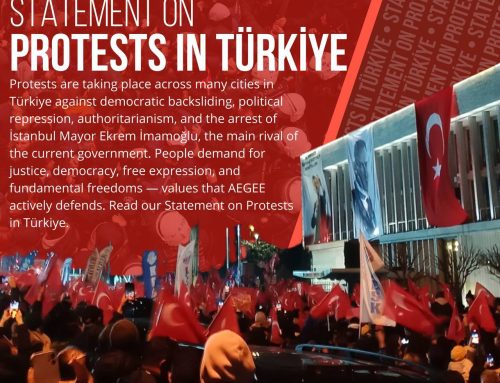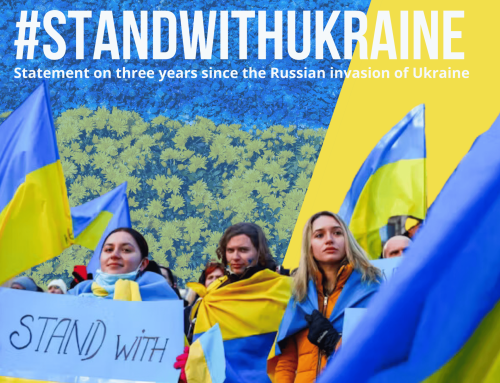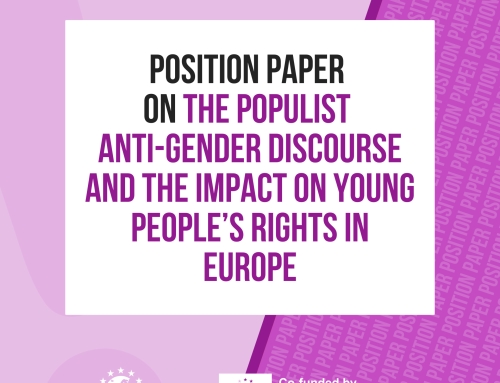We, the partners and over 200 participants, gathered in the 14th Edition of the University on Youth and Development (UYD) celebrating the European Year of Citizens:
- Recall the international and regional documents enhancing and promoting the exercise of democratic citizenship[i],
- Refer to the Universal Declaration of Human Rights, the International Covenant on Civil and Political Rights, the International Covenant on Economic, Social and Cultural Rights and the European Social Charter;
- Recall the United Nations Millennium Declaration, wherein the international community committed itself to sparing no effort to promote democracy and strengthen the rule of law, as well as to strive for the full protection and promotion in all countries of civil, political, economic, social and cultural rights for all;
- Reaffirm the decision of the partners of the Network of Universities on Youth and Global Citizenship to designate “Democratic Citizenship” as the joint theme for all the four sister universities in 2013 and reflecting the discussions and views of the youth representatives participating in the 1st Mediterranean University on Youth and Global Citizenship, the 5th African University on Youth and Development and the 14th University on Youth and Development;
- Recognize that democratic citizenship goes beyond the citizen’s legal status and the voting right, and implies inclusion, participation, representation, the recognition of culture and values as well as being active in shaping understandings and practices of citizenship, based on the principles of freedom, right to choose and equal access to opportunities;
- Acknowledge the role of Global Education in the promotion of democratic values, intercultural dialogue and world awareness, as well as for fighting all forms of discrimination and social exclusion. It is thus fundamental to foster active citizenship and empower young people to take positive action to the development of their societies.
- Denounce the vulnerable current situation of youth, which is at the front line of the on-going economic and financial crisis. In most cases young people are living in a context of uncertainty where social, cultural and economic circumstances delay their definition as political subjects and citizens. And in turn, risking the health of democratic systems;
- Acknowledge that the divide between citizens and democratic institutions, elected representatives and political parties on one side and on the other the citizens is growing and that in the last years youth all over the world has been claiming the exercise of democratic citizenship and responsibility to be part of decision-making processes and contribute to the political solutions;
Considering the importance for the quality of democracy in granting young people the access to equal opportunities and full participation in society we:
- Recognize young people as stakeholders and relevant actors in the democratic system, by giving them the access and encouragement to exercise the civil and political rights and duties and express their opinions and contribute to the problem solving;
- Call upon governments to foster a culture of responsible, proactive and democratic citizenship for all citizens, in particular for all young people and with special attention to those with fewer opportunities at a risk of social and economic exclusion, and to remove all obstacles to full and effective exercise of their civil and political rights and duties;
- Emphasize the need to recognize National Youth Councils as independent civil society structures and legitimate representatives of young people at national level;
- Call for the integration of citizenship education as an element of global education – responsibility of the whole society-, in formal and non formal settings, in order to build the capacity of young people to enable them to make choices, take decisions and assume the responsibility for their own lives within a democratic society – and that should follow as well recognition and capacity-building of educators;
- Urge governments, institutions and other stakeholders to recognize youth as a transversal group for development and positive agents for a sustainable human development and include them as a central pillar in the post-2015 development agenda.
Furthermore, we strongly recommend that Governments and relevant stakeholders:
- Acknowledge the role of youth organizations and National Youth Councils as representatives of youth and in strengthening democracy and active citizenship through non-formal education and volunteering and guarantee the autonomy and independence of youth organizations by providing sufficient and structural financial resources, ensuring a legal framework to support their work and engaging them in youth related decision making processes.
- Recognize the role of youth organizations as promoters of volunteering and as providers of non-formal education, both vital for development of values and soft skills such as active citizenship, democratic participation on one hand and leadership, team work, and critical thinking and communication skills on the other hand by ensuring their representativeness in decision-making on youth-related issues.
- Claim on the right and responsibility of young people to be part of decision making through more inclusive measures and mechanisms for civic participation and engagement at local, regional, national, European and global level. In this sense, the use of information and communications technologies and strategies by democratic sectors within the political processes of local communities, states and regions, nations and on the global stage provide a distinctive structure of opportunities that has the potential to renew interest in civic engagement and participation.
- Include and support youth delegates to the United Nations and other supranational bodies in national delegations, as a mechanism of active participation in policy-making in the United Nations system, as well as of monitoring of the World Programme of Action on Youth.
In Sum, we believe that youth is not only a future generation but rather needs to have an active voice in the present society. The rights of young people need actions now!
[i] Namely:
- The World Programme of Action on Youth
- The Revised European Charter on the Participation of Young People in Local and Regional Life
- The Council of Europe Charter on Education for Democratic Citizenship and Human Rights Education
- The Plan of Action for the second phase (2010-2014) of the World Programme for Human Rights Education. Official records of the General Assembly, Sixty-fifth session, supplement No 53A (A/65/53/Add.1) chap II, resolution 15/11
- The UE Council Resolution of 27th November 2012 on the overview of the structured dialogue with young people on youth participation in democratic life in Europe
- The Council Resolution of 27 November 2009 on a renewed framework for European cooperation in the youth field (2010-2018)
- The Lisbon Treaty, especially its 10.3 (Treaty of the European Union) and 165 (Treaty on the Functioning of the European Union) articles; as well as
- The European Youth Forum Policy Paper on Democracy and Youth Organizations . COMEM 0057-10-FINAL (2010) and
- The European Youth Forum position paper on Life-wide learning for Active Citizenship;





